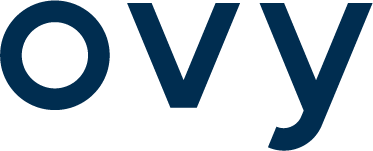Key Takeaways
- In this article, you can find out everything you need to know about the most important dates and preparations during pregnancy so that you are well prepared for the arrival of your baby.
- From medical check-ups and financial support to practical tips for your baby's first outfit - this checklist leaves no question unanswered.
- Let valuable information and practical advice guide you through this exciting time and start your upcoming parenthood in a well-organized and relaxed way!
Are you pregnant and wondering which important appointments are ahead of you? A pregnancy checklist can help you keep track of everything. From prenatal check-ups to legal matters, there’s a lot to consider. This checklist will help you remember all the essentials and prepare well for your baby's arrival.
In this article, you'll learn about medical care during pregnancy and the financial and legal aspects to consider. We also provide tips for practical preparations for your baby. With this comprehensive pregnancy checklist, you're well-equipped to enjoy this special time with calm and anticipation.
Medical Care During Pregnancy
Planning Prenatal Check-ups
During your pregnancy, you are entitled to ten prenatal check-ups. These appointments are crucial for monitoring your health and your baby's development. After the initial examination, these check-ups usually take place once a month. From the 32nd week of pregnancy, the check-ups are conducted every two weeks.
During these routine examinations, various aspects are checked:
Listening to the baby's heartbeat
Measuring your blood pressure
Tracking weight gain
Testing urine for kidney problems and diabetes
Checking blood for possible iron deficiency
Measuring the size and height of the uterus
Determining the baby's position
Checking for possible water retention or varicose veins
Additional free tests include checks for rubella immunity, chlamydia, hepatitis B, syphilis, and HIV.
Attending Ultrasound Appointments
Throughout your pregnancy, three ultrasound scans are scheduled:
9th to 12th week of pregnancy
19th to 22nd week of pregnancy
29th to 32nd week of pregnancy
For the second ultrasound, you can choose between a basic scan and an extended basic scan, which allows for a more detailed examination of all the baby's organs.
Considering Additional Tests
Besides the standard check-ups, there are other tests you might consider:
Non-invasive prenatal testing (NIPT) from the 10th week of pregnancy
Nuchal translucency measurement between the 11th and 14th weeks of pregnancy
Placental biopsy (chorionic villus sampling)
Amniocentesis (amniotic fluid test)
These additional tests are usually not covered by health insurance unless there is a medical reason. Discuss with your doctor whether these tests are appropriate for you.
Remember: You have the right to decide which examinations you want to undergo. Your doctor will inform you about the pros and cons of each test. The important thing is that you feel comfortable with your choices and make the best decision for you and your baby.
Financial and Legal Aspects
Applying for Maternity Benefits
During your pregnancy and after your baby's birth, you are entitled to financial support. Maternity benefits secure your income during maternity leave. To be eligible, you must be employed and a member of a statutory health insurance.
The amount of maternity benefits is based on your average net salary of the last three months, with a maximum of 13 euros per day. If your net salary is higher, your employer pays the difference as a supplement.
To apply for maternity benefits, you will need:
A certificate with the expected due date
An application to your health insurance
If you are privately insured or covered by family insurance, you may receive maternity benefits from the Federal Office for Social Security under certain conditions.
Preparing for Parental Allowance
After your child is born, you are entitled to parental allowance, which ranges from a minimum of 300 to a maximum of 1,800 euros per month, depending on your average net income of the last twelve months.
Important points about parental allowance:
You can receive it for twelve months.
For multiple births, you receive an additional 300 euros per child.
Couples can receive a total of 14 months of parental allowance if both parents take parental leave.
Single parents are entitled to 14 months of parental allowance.
To apply for parental allowance, you will need:
The child's birth certificate
Proof of income for the last twelve months
Employer's confirmation of parental leave
Confirmation of the maternity benefit supplement
Health insurance confirmation of maternity benefits
Note: Each parent must submit their own application.
Paternity Recognition and Custody Declaration
If you are not married to the mother of your child, paternity recognition is important. This can be done at any time, even before the birth, at the registry office, youth welfare office, or a notary.
For paternity recognition, you need:
ID documents
Birth certificate or lineage certificate
Before birth: Proof of the expected due date (e.g., maternity passport)
After birth: Child's birth certificate
The mother must agree to the paternity recognition. Note that recognizing paternity does not automatically grant custody. Both parents must provide a corresponding declaration for joint custody.
Practical Preparations for the Baby
Getting the Initial Baby Equipment
As your baby's arrival approaches, it's important to be well-prepared. A comprehensive set of baby essentials allows you to focus entirely on your child during the first weeks. Here are some essential items to get:
Baby clothes: Start with the basics, as babies grow quickly and you often receive clothes as gifts. Choose organic materials and washable fabrics at high temperatures.
Sleeping area: A bedside crib or cot is practical. Don't forget a mattress, fitted sheets, and a sleeping bag for safe sleeping.
Breastfeeding and feeding: Nursing pillows, nursing bras, nursing pads, and muslin cloths are useful. If you're not breastfeeding, you'll need formula, bottles, and accessories.
Diapering essentials: A changing table with a mat, diapers, wipes, and care products are indispensable.
Bathing supplies: A baby bathtub, washcloths, bath thermometer, and hooded towels are part of the basic equipment.
Out and about: A stroller with accessories, a diaper bag, and possibly a baby carrier are important for outings.
Tip: Second-hand baby clothes are often cheaper and less toxic due to frequent washing.
Setting Up the Nursery
A well-equipped nursery creates a pleasant atmosphere for your baby and makes your daily life easier. Here are some tips for designing the room:
Convertible furniture: Invest in convertible furniture such as a changing table without an attachment or a baby bed that can be converted into a junior bed.
Storage space: Plan enough storage options for toys, books, and clothes. Shelves, boxes, and baskets are practical and decorative.
Cozy atmosphere: Rugs, curtains, and cushions make the room homely and improve acoustics. Washable cotton rugs are particularly suitable.
Lighting: Ensure a good mix of natural and artificial light. A night light can be helpful for nighttime care.
Safety: Use child-safe furniture and sockets. Securely attach shelves to the wall to avoid accidents.
Researching Childcare Options
While there is still some time, it is wise to start looking into childcare options early. Here are some choices:
Daycare: For children from the eighth week of life until kindergarten entry. Offers a needs-based environment and individual support.
Childminding: Flexible care by childminders, usually in their home. Suitable for children of all ages.
Kindergarten: From three years until school entry. Promotes social development and playful learning.
Babysitter: Ideal for short-term care or special occasions.
Au-pair: Young people from abroad who live with the family for 6-12 months and help with childcare.
Keep in mind: Children benefit from good childcare that fosters their language, motor, and social skills. Find out early from your local youth welfare office about the available options in your area and the registration formalities.
With these practical preparations, you create a solid foundation for the first few months with your baby. Remember, not everything has to be perfect—the most important thing is your love and care for your child.
Conclusion
Pregnancy is an exciting time full of preparations and important decisions. You now have an overview of the essential medical check-ups, financial and legal aspects, and practical preparations for your baby. With this checklist, you are well-prepared to approach this special phase with calm and anticipation.
Remember that every pregnancy is unique. Trust your instincts, and don’t hesitate to seek advice from your doctor, midwife, or other professionals if you have questions or concerns. The coming months offer you the opportunity to prepare for your new life as a parent. Enjoy this time and look forward to the exciting journey ahead!
References & Literature
- Professional Association of Gynecologists (BVF) - Gynecologists on the Net: Pregnancy Calendar. URL: https://www.frauenaerzte-im-netz.de/schwangerschaft-geburt/schwangerschaft/schwangerschaftskalender/
- Federal Centre for Health Education (BZgA) - Familienplanung.de: Preventive check-ups: Safety for mother and child, June 18, 2019. URL: https://www.familienplanung.de/schwangerschaft/schwangerschaftsvorsorge-und-begleitung/vorsorge-zur-sicherheit/
- Brezinka, C., & Steiner, H. (2013). Ultrasound screening in pregnancy. Ultrasound diagnostics in obstetrics and gynecology, 5-12.

